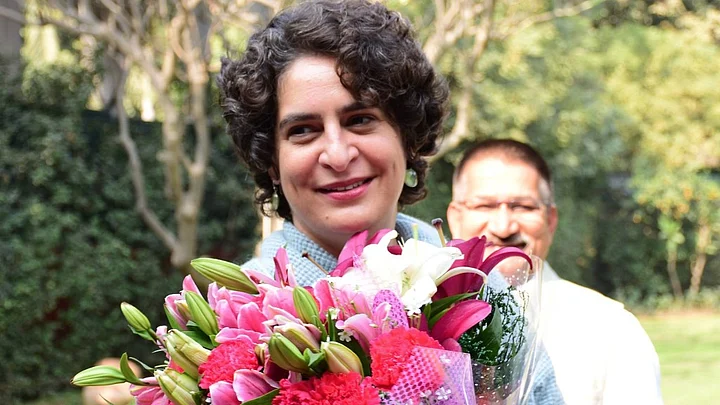The pitiful showing of female candidates in state elections is an indictment of the failure of successive governments to enact the two-decade-old women’s reservation bill, activists said.
Women hold only 12 percent of seats in the Upper as well as the Lower House of Parliament, says the Inter-Parliamentary Union (IPU) – just over half the global average of 23 percent.
After years of lobbying by activists, the bill – which provides for one-third of the seats in Parliament and state Assemblies to be reserved for women – was passed by the Rajya Sabha in 2010.
Yet it has faced vehement resistance from male MPs and has failed to be tabled for discussion in the Lok Sabha, despite pledges by successive governments over the last seven years to enact the legislation.
The National Alliance for the Women's Reservation Bill, a coalition of over 20 women's rights organisations, said their research showed in polls currently taking place in the five states, women made up around 6 percent of candidates.
Women face so many difficulties in India and it is the same in political parties. Just enter these male-dominated, patriarchal political party offices and you will realise how difficult it is to survive as a woman in politics in India.Ranjana Kumari, Director, Center for Social Research
"They never talk about it openly, but women face everything from sexual harassment to discrimination. As a result, our women are not getting the space they deserve in the political decision-making process," Kumari told a news conference.
The state polls – taking place in Punjab, Uttar Pradesh, Uttarakhand, Goa and Manipur – show abysmally low numbers of women being fielded by all parties, including the BJP, said the alliance.
For example, in Uttar Pradesh, the BJP has given 11 percent of seats to women candidates. Other parties such as the Congress, the Samajwadi Party and the Bahujan Samaj Party have allocated 5, 12 and 5 percent respectively to women.
India is ranked 87 out of 144 countries in the Global Gender Gap 2016, an annual report by the World Economic Forum which measures how women fare in areas such as economic participation, health, education and political representation.
Experts say among the women's issues that need to be addressed in India such as sexual violence, and discrimination in health, education and employment, one of the most important is to ensure that women have a voice in the highest seats of power.
The issue of women’s participation in decision-making in Parliament is not a women’s issue, it is a social issue. It is part of the Constitution which guarantees equality for both men and women.Jyotsna Chatterjee, Director, Joint Women’s Programme
"This government as well as the Congress have put it in their manifestos, and many of us voted for them because of this. They now should honour their pledge and bring it before Parliament," she said.
The IPU ranks India's representation of women in the Parliament well below Pakistan, which has 21 percent female representation, Afghanistan with 28 percent, Nepal with 30 percent, and Bangladesh with 20 percent.
(This article has been published in an arrangement with the Thomson Reuters Foundation)
